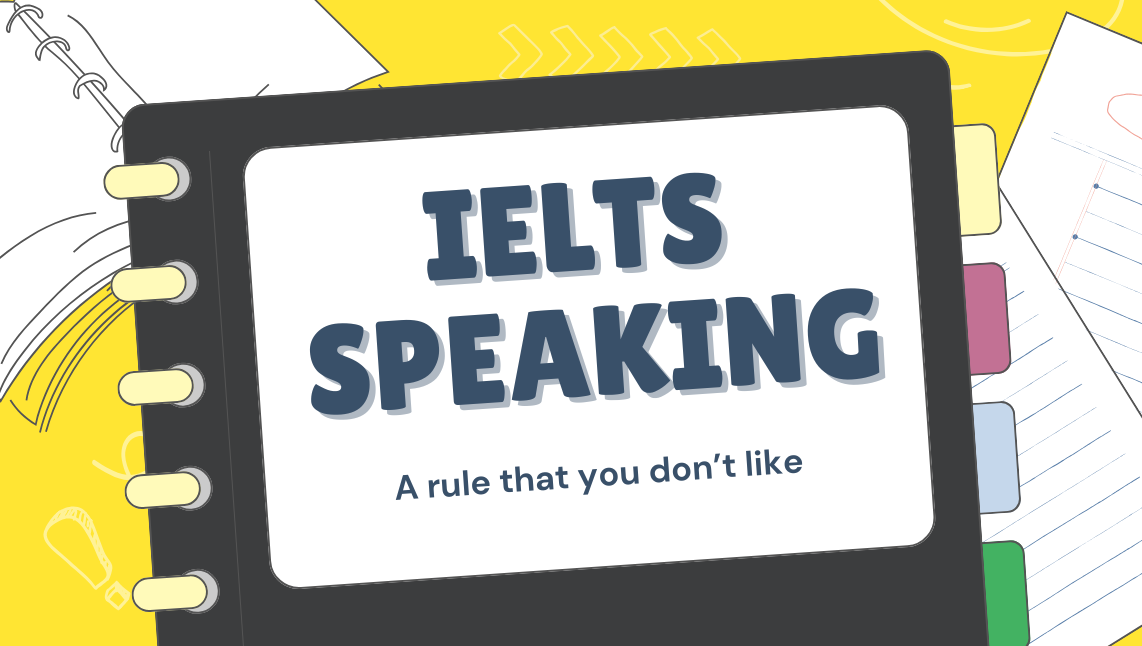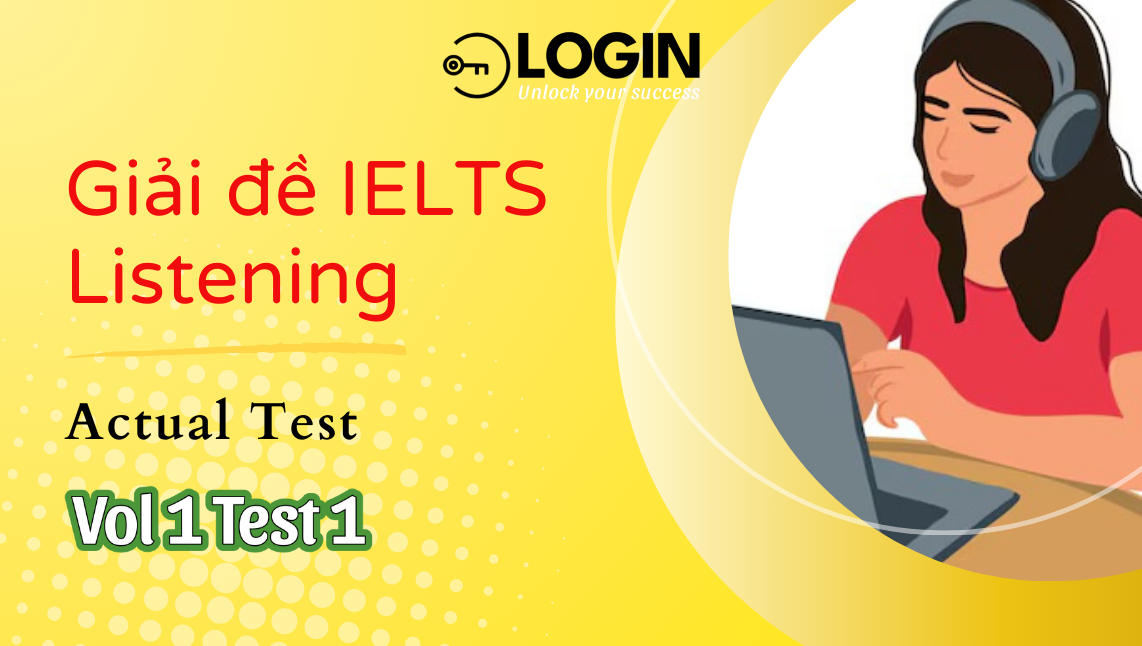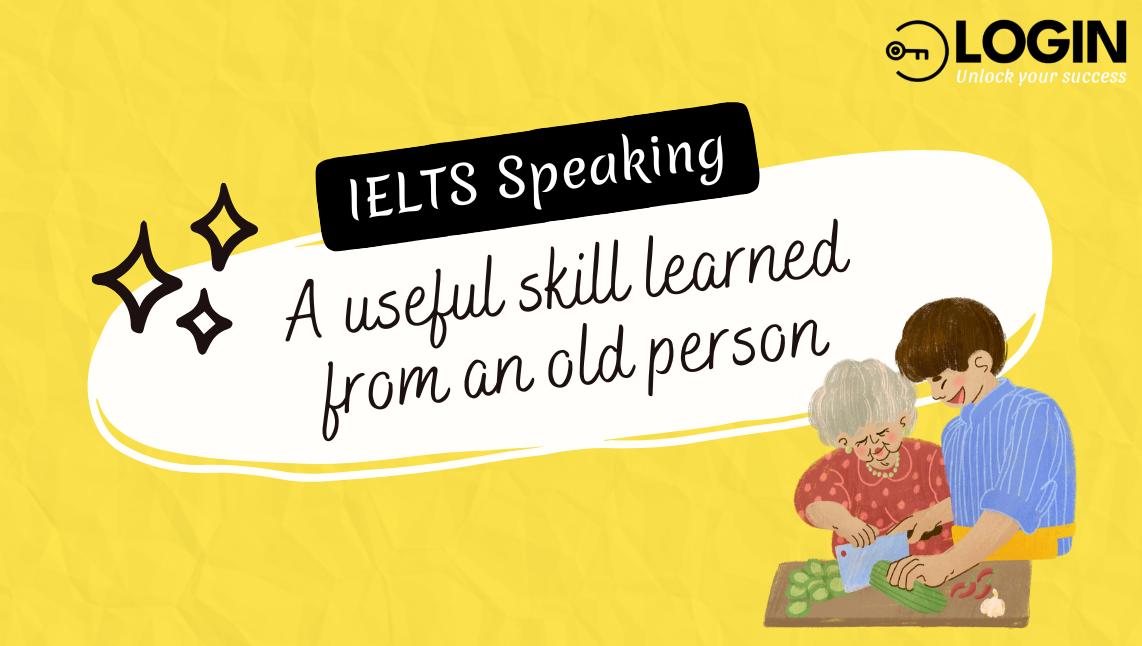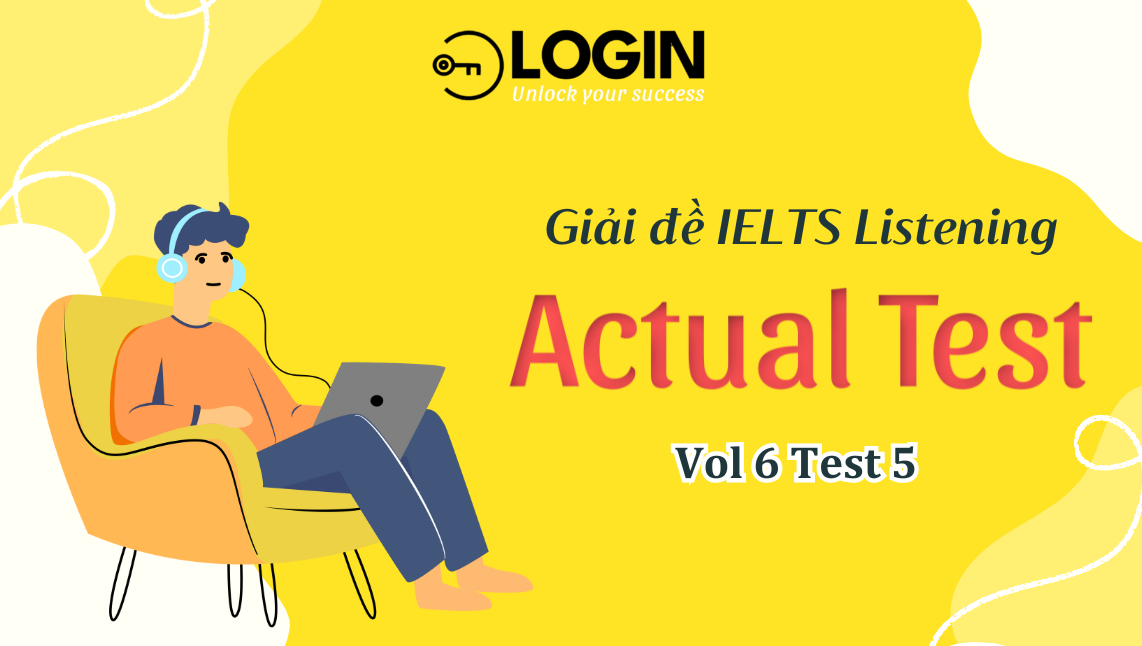Chủ đề A time you learned something in words and sang them from memory là một trong những câu hỏi thú vị và quen thuộc trong IELTS Speaking Part 2. Để giúp bạn xây dựng một câu trả lời tự nhiên, lôi cuốn và ghi điểm cao, IELTS Login sẽ bật mí dàn ý chi tiết, từ vựng đắt giá cùng những cấu trúc câu ấn tượng. Cùng khám phá ngay để biến bài nói của bạn trở nên thật xuất sắc!
PART 2. Describe a time you learned something in words and sing them from memory (e.g. songs, poems)
You should say:
- Where you were
- Who was listening to you
- What you had to say or sing
- And explain how you felt about saying or singing something you had learnt
One unforgettable experience I had with learning through words and music was when I first memorized the English alphabet song “ABC song”. As a young child, trying to remember all 26 letters in the correct order felt overwhelming. However, the moment I learned the song, everything changed—it became effortless and even enjoyable.
I first learned this song when I was five years old in kindergarten. Our teacher introduced the song as a fun way to make it easier for us to remember the alphabet. At first, I was nervous because the letters seemed random and difficult to memorize. But as soon as the teacher played the melody and encouraged us to sing along, I realized that learning could be fun and engaging.
I kept singing it over and over again, sometimes without even realizing it. Whether I was playing, walking around the house, or getting ready for school, the melody would just pop into my head. Before long, I had memorized the entire alphabet effortlessly. Beyond the alphabet, songs also helped me learn numbers, animal names, and even good habits. In primary school, I often sang a song about washing my face, which reminded me to do it properly every morning instead of just splashing water like a cat.
Even now, years later, I can still recall and sing the alphabet song without hesitation, proving just how powerful music is in helping us retain information for a long time. Even as an adult, I still recall some of the songs I learned as a child, proving that learning through music creates strong and lasting memories.
overwhelming (ADJ): quá tải, khó khăn
effortless (ADJ): dễ dàng, không tốn sức
memorize (V): học thuộc lòng
engaging (ADJ): lôi cuốn
pop into my head: bật ra trong đầu
recall (V): nhớ lại
retain (V): ghi nhớ
strong and lasting memories: ký ức bền lâu và mạnh mẽ
FOLLOW-UP QUESTIONS
Do you think memorizing songs or poems helps you in other things? How?
Yes, I strongly believe that memorizing songs or poems can be highly beneficial in many aspects of life. Firstly, it improves memory and cognitive skills by strengthening the brain’s ability to retain information. Secondly, it enhances language learning. Memorizing lyrics helps with vocabulary, pronunciation, and sentence structures. Moreover, it boosts concentration and confidence. Reciting poems or singing in front of others helps with focus and public speaking. In conclusion, memorizing songs or poems is not just for entertainment—it strengthens memory, aids language learning, and builds confidence.
beneficial (ADJ): có lợi
cognitive skills: kỹ năng nhận thức
reciting poems: đọc thơ thuộc lòng
public speaking: kỹ năng nói trước đám đông
PART 3.
1. Do you think it's good for children to learn from songs and poems?
Definitely ! Songs and poems make learning much more engaging and effective for children. Since kids naturally have short attention spans, music serves as a powerful tool to sustain their interest and motivation. Moreover, the melody of songs enhance memory retention, making it easier for children to absorb new vocabulary, concepts, and even numerical sequences. Furthermore, songs turn learning into an enjoyable experience. For instance, many children effortlessly learn to count through rhymes like ABC song. This approach transforms learning into an enjoyable and play-like experience, fostering a more natural and lasting acquisition of knowledge.
short attention spans: khoảng tập trung ngắn
memory retention: khả năng ghi nhớ
absorb (V): hấp thụ, tiếp thu
numerical sequences: chuỗi số học
play-like experience: trải nghiệm giống như trò chơi
foster (V): thúc đẩy
lasting acquisition: sự tiếp thu lâu dài
2. What are the advantages of learning from songs?
Learning through music offers numerous advantages. Firstly, songs significantly enhance memorization, allowing individuals to retain information effortlessly. This explains why people can recall song lyrics even years after first hearing them. Secondly, songs make learning more engaging by stimulating both hemispheres of the brain, which helps improve concentration and cognitive processing. Additionally, songs reduce stress and anxiety, creating a relaxed learning environment where learners absorb information more effectively. For instance, language learners who study vocabulary and pronunciation through songs often acquire fluency more naturally compared to traditional methods.
both hemispheres of the brain: kích thích cả hai bán cầu não
cognitive processing: quá trình nhận thức
3. Do adults understand things from poems better than children?
Well, in some cases, kids can have a better grasp of the meanings in poems. For example, children’s interpretations, though seemingly simple, can be remarkably insightful and creative. Additionally, the melodic and narrative aspects of poetry often captivate children, allowing them to develop a deeper appreciation for its rhythmic structure. However, in most cases, grown-ups have a better understanding of poetry compared to kids. One prominent reason is that the wisdom gained from experience allows adults to perceive the complexities of poetry more effectively. Moreover, their broader knowledge base and refined analytical skills enable them to decode metaphors and symbolic imagery. As a result, I believe adults generally understand poetry better than kids.
grasp (N): sự hiểu biết, nắm bắt
children’s interpretations: sự diễn giải của trẻ em
insightful (ADJ): sâu sắc
captivate (V): thu hút, lôi cuốn
deeper appreciation: sự trân trọng sâu sắc hơn
refined analytical skills: kỹ năng phân tích tinh tế
decode metaphors: giải mã phép ẩn dụ
symbolic imagery: hình ảnh mang tính biểu tượng
4. Do you think it's useful for teaching knowledge?
Absolutely! Songs and poetry serve as effective educational tools for several key reasons. First of all, melodies and rhymes support students in retaining information more effectively. For example, songs are commonly used to teach multiplication tables, making them easier for children to recall. Secondly, learning through music and poetry turns studying into an enjoyable experience rather than a tedious task. For instance, incorporating ballads into history lessons helps bring historical events to life. Lastly, poetry and songs play a key role in language learning as they enhance pronunciation, listening, and vocabulary.
tedious task: nhiệm vụ nhàm chán
Xem thêm:
IELTS Speaking Part 1: Feeling Bored (Sample Answer)
IELTS Speaking Part 2+3: Describe a movie you watched recently (Sample Answer)
IELTS Speaking Part 2+3: Describe a person who is good at making things by hand (Sample Answer)
IELTS Speaking Part 2+3: Describe a park or a garden in your city (Sample Answer)
_________________
Biên soạn bởi IELTS Login Academic Team
- IELTS Speaking Part 2+3: Describe a rule (in school or work) that you don’t like (Sample Answer)
- Bài mẫu IELTS Writing Task 2 - Giải đề thi thật
- Giải đề IELTS Listening (Actual Test - Vol 1 Test 1)
- IELTS Speaking Part 2+3: Describe a useful skill you learned from an older person (Sample Answer)
- Bài mẫu IELTS Writing Task 1 - Giải đề thi thật
- IELTS Speaking Part 2+3: Describe an ambition that you haven’t achieved (Sample Answer)
- Bài mẫu IELTS Writing Task 2 - Giải đề thi thật
- Giải đề IELTS Listening (Actual Test - Vol 6 Test 5)








